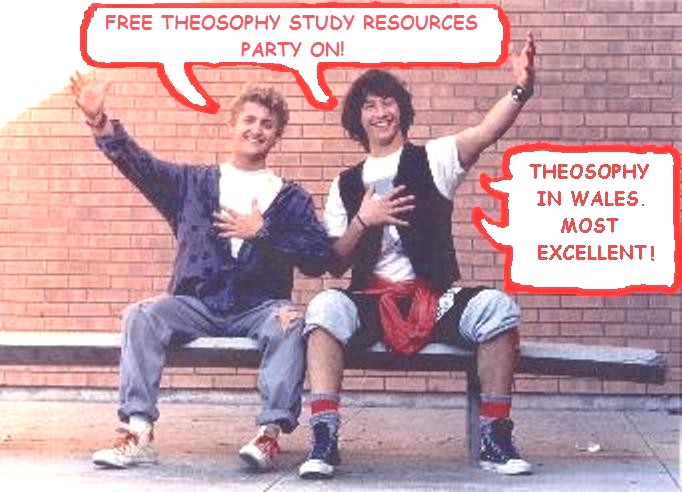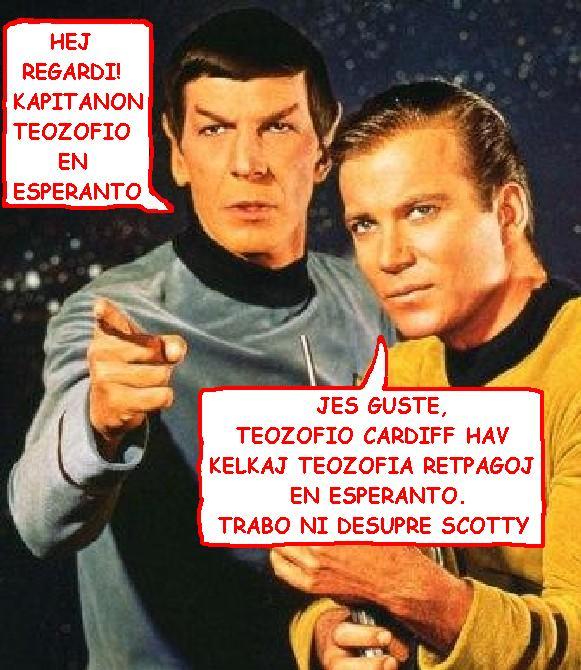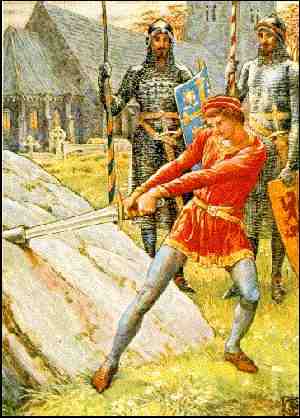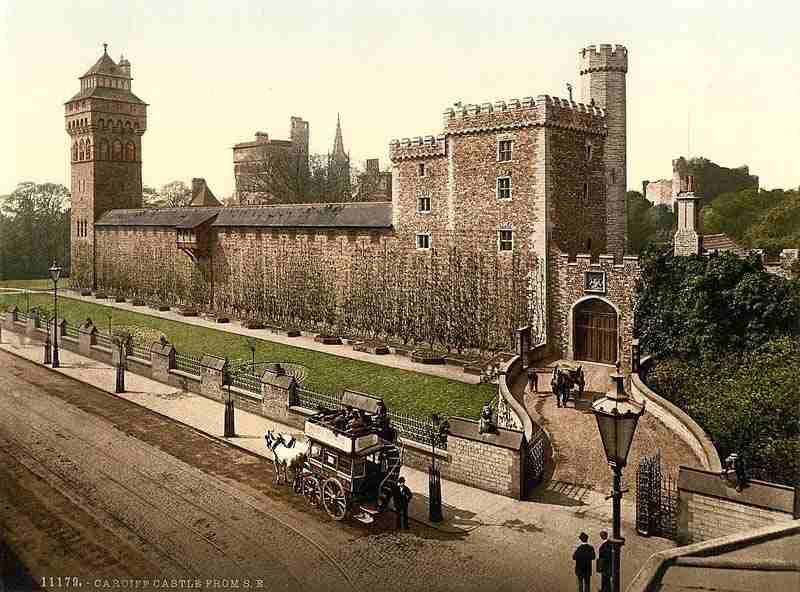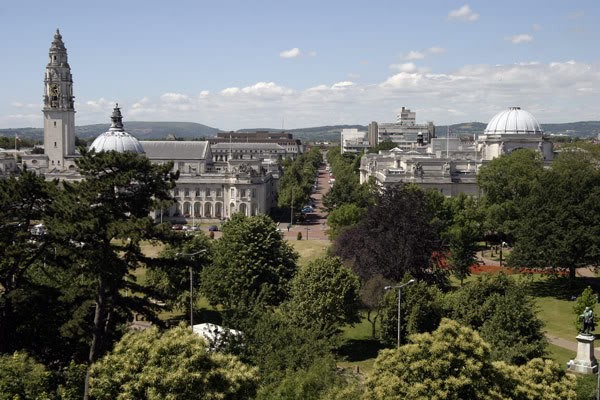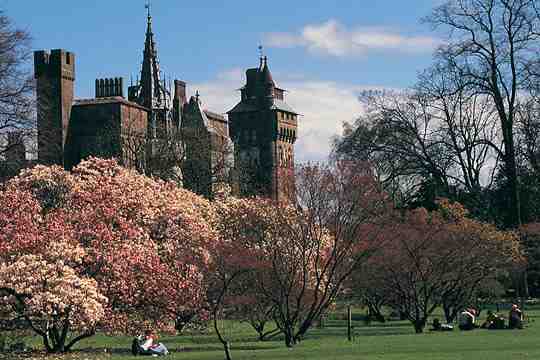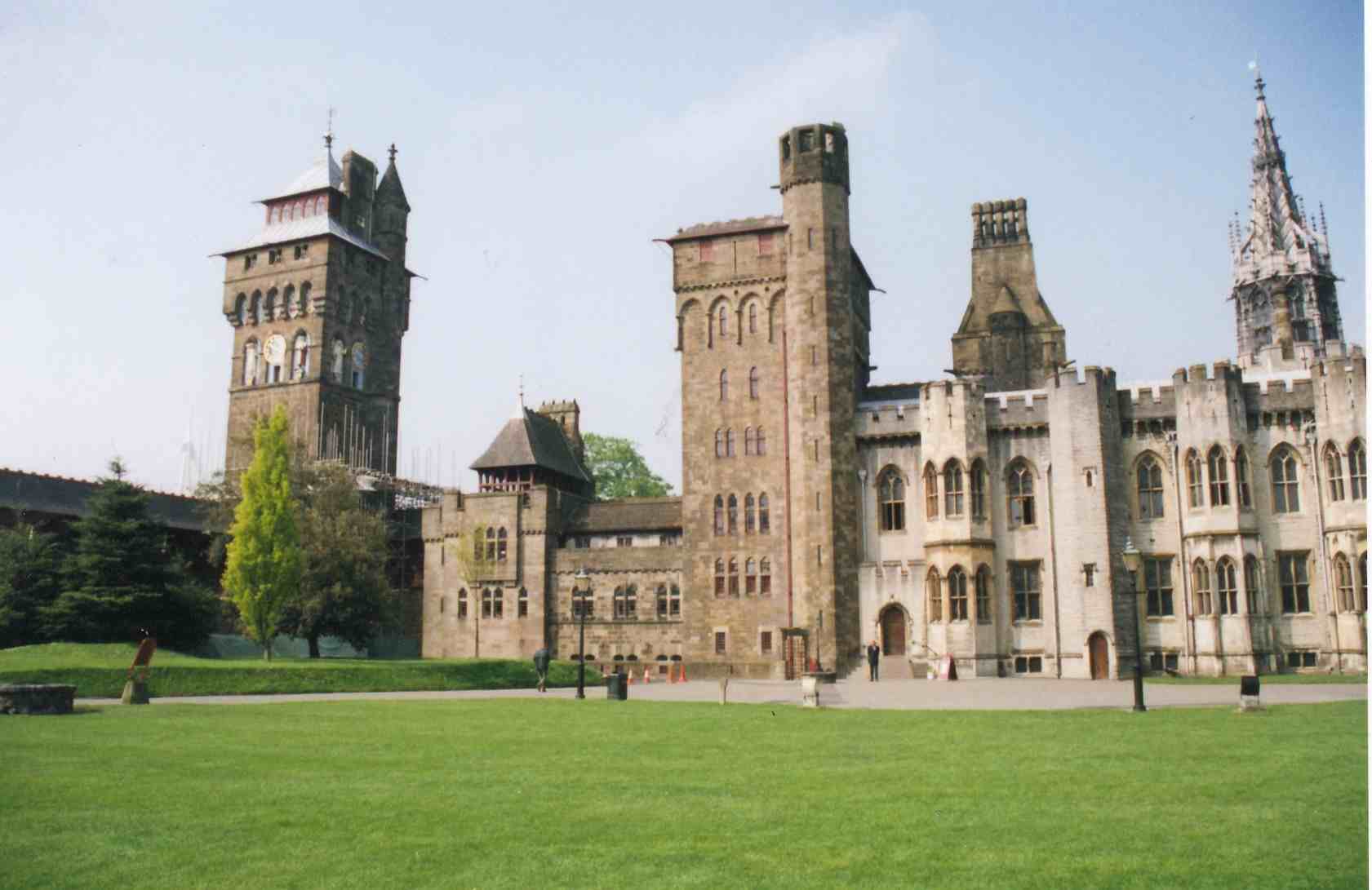THE
OF
THEOSOPHY
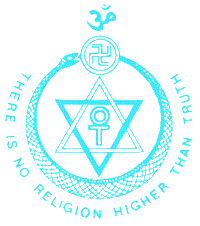
A
Definitive Work on Theosophy
By
William
Quan Judge
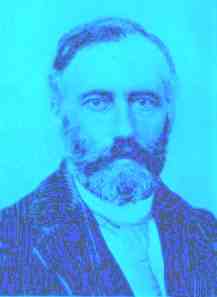
CHAPTER 13
Devachan
Having shown that
just beyond the threshold of human life there is a place of separation wherein
the better part of man is divided from his lower and brute elements, we come to
consider what is the state after death of the real being, the immortal who
travels from life to life. Struggling out of the body the entire man goes into kama loka, to purgatory, where he
again struggles and
loosens
himself from the lower skandhas; this period of birth
over, the higher principles, Atma-Buddhi-Manas, begin to think in a manner different
from that which the body and brain permitted in life. This is the state of
Devachan, a Sanskrit word meaning literally "the place of the gods,"
where the soul enjoys
felicity; but
as the gods have no such bodies as ours, the Self in devachan
is devoid of a mortal body. In the ancient books it is said that this state
lasts "for years of infinite number," or "for a period
proportionate to the merit of the being"; and when the mental forces
peculiar to the state are exhausted, "the being is drawn down again to be
reborn in the world of mortals."
Devachan is therefore an
interlude between births in the world. The law of karma which forces us all to
enter the world, being ceaseless in its operation and also universal in scope,
acts also on the being in devachan, for only by the
force or operation of Karma are we taken out of devachan.
It is something like the
pressure of
atmosphere which, being continuous and uniform, will push out or crush that
which is subjected to it unless there be a compensating quantity of atmosphere
to counteract the pressure. In the present case the karma of the being is the
atmosphere always pressing the being on or out from state to state; the
counteracting quantity of atmosphere is the force of the being's own
life-thoughts and aspirations which prevent his coming out of devachan until that force is exhausted, but which being
spent has no more power to hold back the decree of our self-made mortal
destiny.
The necessity
for this state after death is one of the necessities of evolution growing out
of the nature of mind and soul. The very nature of manas
requires a devachanic state as soon as the body is
lost, and it is simply the effect of loosening the bonds placed upon the mind
by its physical and astral encasement.
In life we
can but to a fractional extent act out the thoughts we have each moment; and
still less can we exhaust the psychic energies engendered by each day's aspirations
and dreams. The energy thus engendered is not lost or annihilated, but is
stored in Manas, but the body, brain, and astral body permit no full
development of the force. Hence, held latent until death, it bursts then from
the weakened bonds and plunges Manas, the thinker, into the expansion, use, and
development of the thought-force set up in life.
The
impossibility of escaping this necessary state lies in man's ignorance of his
own powers and faculties. From this ignorance delusion arises, and Manas not
being wholly free is carried by its own force into the thinking of devachan. But while ignorance
is the cause
for going into this state the whole process is remedial, restful, and beneficial.
For if the average man returned at once to another body in the same
civilization he had just quitted, his soul would be completely tired out and
deprived of the needed opportunity for the development of the higher part of
his nature.
Now the Ego
being minus mortal body and kama, clothes itself in devachan with a vesture which cannot be called body but may
be styled means or vehicle, and in that it functions in the devachanic
state entirely on the plane of mind and soul. Everything is as real then to the
being as this world seems to be to us.
It simply now
has gotten the opportunity to make its own world for itself unhampered by the
clogs of physical life. Its state may be compared to that of the poet or artist
who, rapt in ecstacy of composition or arrangement of
color, cares not for and knows not of either time or objects of the world.
We are making
causes every moment, and but two fields exist for the manifestation in effect
of those causes. These are, the objective as this world is called, and the
subjective which is both here and after we have left this life. The objective
field relates to earth life and the grosser part of man, to his bodily acts and
his brain thoughts, as also sometimes to his astral body.
The
subjective has to do with his higher and spiritual parts. In the objective
field the psychic impulses cannot work out, nor can the high leanings and
aspirations of his soul; hence these must be the basis, cause, substratum, and
support for the state of devachan. What then is the time,
measured by mortal
years, that one will stay in devachan?
This question
while dealing with what earth-men call time does not, of course, touch the real
meaning of time itself, that is, of what may be in fact for this solar system
the ultimate order, precedence, succession, and length of moments.
It is a
question which may be answered in respect to our time, but not certainly in
respect to the time on the planet Mercury, for instance, where time is not the
same as ours, nor, indeed, in respect to time as conceived by the soul. As to
the latter any man can see that after many years have slipped away he has no
direct
perception of the time just passed, but is able only to pick out some of the
incidents which marked its passage, and as to some poignant or happy instants
or hours he seems to feel them as but of yesterday. And thus it is for the
being in devachan. No time is there. The soul has all
the benefit of what goes on within itself in that state, but it indulges in no
speculations as to the lapse of moments; all is made up of events, while all
the time the solar orb is marking off the years for us on the earth plane.
This cannot
be regarded as an impossibility if we will remember how, as is well known in
life, events, pictures, thoughts, argument, introspective feeling will all
sweep over us in perfect detail in an instant, or, as is known of those who
have been drowning, the events of a whole life time pass in a flash before the
eye of the mind. But the Ego remains as said in devachan
for a time exactly proportioned to the psychic impulses generated during life.
Now this being a matter which deals with the mathematics of the soul, no one
but a Master can tell what the time would be for the average man of this
century in every land. Hence we have to depend on the Masters of wisdom for
that average, as it must be based upon a calculation.
They have
said, as is well put by Mr. A. P. Sinnett in his Esoteric Buddhism, that the
period is fifteen hundred years in general. From a reading of his book, which
was made up from letters from the Masters, it is to be inferred he desires it
to be understood that the devachanic period is in
each and every case fifteen centuries; but to do away with that misapprehension
his informants wrote at a later date that that is the average period and not a
fixed one.
Such must be
the truth, for as we see that men differ in respect to the periods of time they
remain in any state of mind in life due to the varying intensities of their
thoughts, so it must be in
devachan
where thought has a greater force though always due to the being who had the
thoughts.
What the
Master did say on this is as follows: "The 'dream of devachan'
lasts until karma is satisfied in that direction. In devachan
there is a gradual exhaustion of force. The stay in devachan
is proportionate to the unexhausted psychic impulses originated in earth life.
Those whose actions were
preponderatingly material will be sooner brought back into
rebirth by the force of Tanha." Tanha is the thirst for life. He therefore who has not in
life originated many psychic impulses will have but little basis or force in
his essential nature to keep his higher principles in devachan.
About all he
will have are those originated in childhood before he began to fix his thoughts
on materialistic thinking. The thirst for life expressed by the word Tanha is the pulling or magnetic force lodged in the skandhas inherent in all beings. In such
a case as
this the average rule does not apply, since the whole effect either way is due
to a balancing of forces and is the outcome of action and reaction.
And this sort
of materialistic thinker may emerge out of devachan
into another body here in a month, allowing for the unexpended psychic forces
originated in early life. But as every one of such persons varies as to class,
intensity and quantity of thought and psychic impulse, each may vary in respect
to the time of stay in devachan.
Desperately materialistic thinkers will remain in the devachanic
condition stupefied or asleep, as it were, as they have no forces in them
appropriate to that state save in a very vague fashion, and for them it can be
very truly said that there is no state after death so far as mind is
concerned;
they are torpid for a while, and then they live again on earth. This general
average of the stay in devachan gives us the length
of a very important human cycle, the Cycle of Reincarnation. For under that law
national development will be found to repeat itself, and the times that are
past will be found to come again.
The last
series of powerful and deeply imprinted thoughts are those which give color and
trend to the whole life in devachan. The last moment
will color each subsequent moment. On those the soul and mind fix themselves
and weave of them a whole set of events and experiences, expanding them to
their highest limit, carrying out all that was not possible in life. Thus
expanding and weaving these thoughts the entity has its youth and growth and
growing old, that is, the uprush of the force, its
expansion, and its dying down to final exhaustion.
If the person
has led a colourless life the devachan
will be colourless; if a rich life, then it will be
rich in variety and effect. Existence there is not a dream save in a
conventional sense, for it is a stage of the life of man, and when we are there
this present life is a dream. It is not in any sense monotonous. We are too
prone to measure all possible states of life and places for experience by our
present earthly one and to imagine it to be reality.
But the life
of the soul is endless and not to be stopped for one instant. Leaving our
physical body is but a transition to another place or plane for living in. But
as the ethereal garments of devachan are more lasting
than those we wear here, the spiritual,
moral, and
psychic causes use more time in expanding and exhausting in that state than
they do on earth. If the molecules that form the physical body were not subject
to the general chemical laws that govern physical earth, then we should live as
long in these bodies as we do in the devachanic
state. But such a
life of
endless strain and suffering would be enough to blast the soul compelled to
undergo it. Pleasure would then be pain, and surfeit would end but in an
immortal insanity. Nature, always kind, leads us soon again into heaven for a
rest, for the flowering of the best and highest in our natures.
Devachan is then neither
meaningless nor useless. "In it we are rested; that part of us which could
not bloom under the chilling skies of earth-life bursts forth into flower and
goes back with us to earth-life stronger and more a part of our nature than
before. Why should we repine that Nature kindly aids us in the interminable
struggle, why keep the mind revolving about the present petty personality and
its good and evil fortunes? " (Letter from Mahatma K. H. See Path p. 191,
Vol. 5.)
But it is
sometimes asked, what of those we have left behind: do we see them there? We do
not see them there in fact, but we make to ourselves their images as full,
complete, and objective as in life, and devoid of all that we then thought was
a blemish. We live with them and see them grow great and good instead of mean
or bad. The mother who has left a drunken son behind finds him before her in devachan a sober, good man, and likewise through all
possible cases, parent, child, husband, and wife have their loved ones there
perfect and full of knowledge. This is for the benefit of the soul. You may
call it a delusion if you will, but the illusion is necessary to happiness just
as it often is in life. And as it is the mind that makes the illusion, it is no
cheat.
Certainly the
idea of a heaven built over the verge of hell where you must know, if any
brains or memory are left to you under the modern orthodox scheme, that your
erring friends and relatives are suffering eternal torture, will bear no
comparison with the doctrine of devachan. But
entities in devachan are not
wholly devoid
of power to help those left on earth. Love, the master of life, if real, pure,
and deep, will sometimes cause the happy Ego in devachan
to affect those left on earth for their good, not only in the moral field but
also in that of material circumstance. This is possible under a law of the
occult universe
which cannot
be explained now with profit, but the fact may be stated. It has been given out
before this by H. P. Blavatsky, without, however, much attention being drawn to
it.
The last
question to consider is whether we here can reach those in devachan
or do they come here. We cannot reach them nor affect them unless we are
Adepts.
The claim of
mediums to hold communion with the spirits of the dead is baseless, and still
less valid is the claim of ability to help those who have gone to devachan.
The Mahatma, a being who has developed all his powers and is free from
illusion, can go into the devachanic state and then
communicate with the Egos there.
Such is one
of their functions, and that is the only school of the Apostles after death.
They deal with certain entities in devachan for the
purpose of getting them out of the state so as to return to earth for the
benefit of the race. The Egos they thus deal with are those whose nature is
great and deep but who are not wise enough to be able to overcome the natural
illusions of devachan.
Sometimes
also the hypersensitive and pure medium goes
into this
state and then holds communication with the Egos there, but it is rare, and
certainly will not take place with the general run of mediums who trade for
money. But the soul never descends here to the medium. And the gulf between the
consciousness of devachan
and that of earth is so deep and wide that it is but seldom the medium can
remember upon returning to recollection here what or whom it met or saw or
heard in devachan. This gulf is similar to that which
separates devachan from rebirth; it is one in which
all memory of what preceded it is blotted out.
The whole period
allotted by the soul's forces being ended in devachan,
the magnetic threads which bind it to earth begin to assert their power. The
Self wakes from the dream, it is borne swiftly off to a new body, and then,
just before birth, it sees for a moment all the causes that led it to devachan and back to the life it is about to begin, and
knowing it to be all just, to be the
result of its
own past life, it repines not but takes up the cross again -- and another soul
has come back to earth.
______________________
THE
OF
THEOSOPHY

Find out
more about
Theosophy
with these links

The Cardiff Theosophical Society Website
The National Wales Theosophy Website
If you
run a Theosophy Group, please feel free
to use any of the
material on this site
The Most Basic Theosophy
Website in the Universe
A quick overview of Theosophy
and the Theosophical Society
If you run a Theosophy Group you
can use this as an introductory handout.
Theosophy Cardiff’s Instant Guide
One liners and quick explanations
H P Blavatsky is
usually the only
Theosophist that
most people have ever
heard of. Let’s put
that right
Theosophy Cardiff Nirvana Pages
The Voice of the Silence Website
An Independent Theosophical Republic
Links to Free Online Theosophy
Study Resources; Courses,
Writings,
The main criteria
for the inclusion of
links on this site is
that they have some
relationship (however
tenuous) to Theosophy
and are lightweight,
amusing or entertaining.
Topics include
Quantum Theory and Socks,
Dick Dastardly and Legendary Blues Singers.
A selection of
articles on Reincarnation
Provided in
response to the large
number of enquiries we
receive at
Cardiff
Theosophical Society on this subject
The Voice of the Silence Website
This is for everyone, you don’t have to live
in Wales to make
good use of this Website
The Seven Principles of Man
By
Annie Besant
No
Aardvarks were harmed in the
The Spiritual Home of Urban Theosophy
The Earth Base for Evolutionary Theosophy
Reincarnation
This guide
has been included in response
to the number
of enquiries we receive on this
subject at Cardiff Theosophical Society
From A Textbook
of Theosophy By C W Leadbeater
How We Remember our Past Lives
Life after Death & Reincarnation
The
Slaughter of the
a great demand by the public for lectures on
Reincarnation
Classic
Introductory Theosophy
Text
A
Text Book of Theosophy
By C
What Theosophy Is From the Absolute to Man
The Formation of a Solar System The Evolution of Life
The Constitution of Man After Death Reincarnation
The Purpose of Life The Planetary Chains
The Result of Theosophical Study
The Occult World
By
Alfred Percy
Sinnett
The Occult World is an treatise on the
Occult and Occult Phenomena, presented
in
readable style, by an early giant of
the Theosophical Movement.
Preface to the American Edition Introduction
Occultism and its Adepts The Theosophical Society
First Occult Experiences Teachings of Occult Philosophy
Later Occult Phenomena Appendix
by
Annie Besant
THE PHYSICAL PLANE THE ASTRAL PLANE
KÂMALOKA THE MENTAL PLANE DEVACHAN
THE BUDDHIC AND NIRVANIC PLANES
THE THREE KINDS OF KARMA COLLECTIVE KARMA
THE LAW OF SACRIFICE MAN'S
ASCENT
______________________
Annie Besant Visits Cardiff 1924
The Theosophy Cardiff Nirvana Pages
National
Wales Centre for Theosophy
Blavatsky
Wales Theosophy Group
______________________
_______________________
Theosophy Cardiff Cancels its Affiliation
to
the Adyar Based Theosophical Society
and becomes an independent body within
the Worldwide Theosophical Movement
Theosophy Birmingham (England)
The Birmingham Annie Besant Lodge
Theosophy Cardiff
has links with the
__________________
The
Theosophy Cardiff
Glastonbury
Pages
The Theosophy Cardiff Guide to
The Theosophy Cardiff Guide to
The Theosophy Cardiff Guide to
The Terraced Maze of Glastonbury Tor
Glastonbury and
Joseph of Arimathea
The Grave of King Arthur & Guinevere
Views of Glastonbury High Street
The Theosophy Cardiff Guide to
__________________
Camberley, Surrey,
England GU15 2LF
Concerns about the fate of the
wildlife as
Tekels Park is to
be Sold to a Developer
Concerns are
raised about the fate of the
wildlife as The Spiritual Retreat,
Tekels Park in
Camberley, Surrey,
England is to be
sold to a developer.
Tekels Park is a
50 acre woodland park,
purchased
for the Adyar Theosophical
In addition to
concern about the park,
many are worried about the future
of the Tekels Park
Deer as they
Confusion as the Theoversity moves out of
Tekels Park to
Southampton, Glastonbury &
Chorley in
Lancashire while the leadership claim
that the Theosophical
Society will carry on using
Tekels Park despite its sale to a developer
Anyone planning a
“Spiritual” stay at the
Tekels Park Guest
House should be aware of the sale.
Future
of Tekels Park Badgers in Doubt
Party On!
Tekels Park Theosophy NOT
Tekels Park & the Loch Ness Monster
A Satirical view
of the sale of Tekels Park
in Camberley,
Surrey to a developer
The Toff’s Guide to the Sale of
Tekels Park
What the men in
top hats have to
say about the sale
of Tekels Park
__________________________
An
Outline of Theosophy
Charles
Webster Leadbeater
Theosophy - What it is How is it Known?
The Method of Observation General Principles
The Three Great Truths Advantage Gained from this Knowledge
The Deity
The Divine Scheme The Constitution of Man
The True Man
Reincarnation
The Wider Outlook
Death Man’s Past and Future Cause and Effect
______________________________
A B C D EFG H IJ KL M N OP QR S T UV WXYZ
Complete Theosophical Glossary in Plain Text Format
1.22MB
Quick Explanations
with Links to More Detailed Info
What is Theosophy
? Theosophy Defined (More Detail)
Three Fundamental Propositions Key Concepts of Theosophy
Cosmogenesis Anthropogenesis Root Races
Ascended Masters After Death States
The Seven Principles of Man Karma
Reincarnation Helena Petrovna Blavatsky
Colonel Henry Steel Olcott William Quan Judge
The Start of the Theosophical
Society
History of the Theosophical
Society
Theosophical Society Presidents
History of the Theosophical
Society in Wales
The Three Objectives of the
Theosophical Society
Explanation of the Theosophical
Society Emblem
The Theosophical Order of
Service (TOS)
Glossaries of Theosophical Terms
Index of
Searchable
Full Text
Versions of
Definitive
Theosophical
Works
H P Blavatsky’s Secret Doctrine
Isis Unveiled by H P Blavatsky
H P Blavatsky’s Esoteric Glossary
Mahatma Letters to A P Sinnett 1 - 25
A Modern Revival of Ancient Wisdom
(Selection of Articles by H P Blavatsky)
The Secret Doctrine – Volume 3
A compilation of H P Blavatsky’s
writings published after her death
Esoteric Christianity or the Lesser Mysteries
The Early Teachings of The
Masters
A Collection of Fugitive Fragments
Fundamentals of the Esoteric Philosophy
Mystical,
Philosophical, Theosophical, Historical
and Scientific Essays Selected from "The
Theosophist"
Edited by George Robert Stow Mead
From Talks on the Path of Occultism - Vol. II
In the Twilight”
Series of Articles
The In the
Twilight” series appeared during
1898 in The Theosophical Review and
from 1909-1913 in The Theosophist.
compiled from information supplied by
her relatives and friends and edited by A P Sinnett
Letters and
Talks on Theosophy and the Theosophical Life
Obras Teosoficas En Espanol
Theosophische Schriften Auf Deutsch
An Outstanding
Introduction to Theosophy
By a student of
Katherine Tingley
Elementary Theosophy Who is the Man? Body and Soul
Body, Soul and Spirit Reincarnation Karma
Guide to the
Theosophy
Wales King Arthur Pages
Arthur draws
the Sword from the Stone
The Knights of The Round Table
The Roman Amphitheatre at Caerleon,
Eamont Bridge, Nr Penrith, Cumbria, England.
Geoffrey of Monmouth
(History of the Kings of Britain)
The reliabilty of this work has long been a subject of
debate but it is the first definitive account of Arthur’s
Reign
and one which puts Arthur in a historcal context.
and his version’s political agenda
According to Geoffrey of Monmouth
The first written mention of Arthur as a heroic figure
The British leader who fought twelve battles
King Arthur’s ninth victory at
The Battle of the City of the Legion
King Arthur ambushes an advancing Saxon
army
then defeats them at Liddington Castle,
Badbury, Near Swindon,
Wiltshire, England.
King Arthur’s twelfth and last victory against the Saxons
Traditionally Arthur’s last battle in which he was
mortally wounded although his side went on to win
No contemporary writings or accounts of his life
but
he is placed 50 to 100 years after the accepted
King Arthur period. He refers to Arthur in his inspiring
poems but the earliest written record of these dates
from over three hundred years after Taliesin’s death.
Pendragon Castle
Mallerstang Valley, Nr Kirkby Stephen,
A 12th Century Norman ruin on the site of what is
reputed to have been a stronghold of Uther Pendragon
From wise child with no
earthly father to
Megastar of Arthurian
Legend
History of the Kings of Britain
Drawn from the Stone or received from the Lady of the Lake.
Sir Thomas Malory’s Le Morte d’Arthur has both versions
with
both swords called Excalibur. Other versions
5th & 6th Century Timeline of Britain
From the departure of the Romans from
Britain to the establishment of sizeable
Anglo-Saxon Kingdoms
Glossary of
Arthur’s uncle:- The puppet ruler
of the Britons
controlled and eventually killed by Vortigern
Amesbury, Wiltshire, England. Circa 450CE
An alleged massacre of Celtic Nobility by the Saxons
History of the Kings of Britain
Athrwys / Arthrwys
King of Ergyng
Circa 618 - 655
CE
Latin: Artorius; English: Arthur
A warrior King born in Gwent and associated with
Caerleon, a possible Camelot. Although over 100 years
later that the
accepted Arthur period, the exploits of
Athrwys may have
contributed to the King Arthur Legend.
He became King of Ergyng, a
kingdom between
Gwent and Brycheiniog (Brecon)
Angles under Ida seized the Celtic Kingdom of
Bernaccia in North East England in 547 CE forcing
Although much later than the accepted King Arthur
period, the events of Morgan Bulc’s 50
year campaign
to
regain his kingdom may have contributed to
Old Welsh: Guorthigirn;
Anglo-Saxon: Wyrtgeorn;
Breton: Gurthiern; Modern Welsh; Gwrtheyrn;
*********************************
An earlier ruler than King Arthur and not
a heroic figure.
He is credited with policies that weakened Celtic Britain
to
a point from which it never recovered.
Although there are no contemporary accounts of
his
rule, there is more written evidence for his
existence than of King Arthur.
How Sir Lancelot slew two giants,
From Sir Thomas Malory’s Le Morte d’Arthur
How Sir Lancelot rode disguised
in
Sir Kay's harness, and how he
From Sir Thomas Malory’s Le Morte d’Arthur
How Sir Lancelot jousted against
four
knights of the Round Table,
From Sir Thomas Malory’s Le Morte d’Arthur
Try
these if you are looking for a local
Theosophy
Group or Centre
UK Listing of Theosophical Groups
Cardiff
Theosophical Society in Wales
Cardiff, Wales, UK. CF24 – 1DL
Quotes
from the Writings of
Helena
Petrovna Blavatsky
The Secret Doctrine , Volume 2, Page 100
It is only by the
attractive force of the contrasts that the two opposites — Spirit and Matter — can be cemented
together on Earth, and, smelted in the fire of self-conscious experience and suffering, find
themselves wedded in Eternity.
The Secret Doctrine , Volume 2, Page 108
It is the motive,
and the motive alone, which makes any exercise of power become black, malignant, or white,
beneficent Magic. It is impossible to employ spiritual forces if there is the
slightest tinge of selfishness remaining in the operator .... The powers and
forces of animal nature can equally be used by the selfish and revengeful, as
by the unselfish and the all-forgiving; the powers and forces of spirit lend
themselves only to the perfectly pure in heart — and this is Divine Magic.
Isis Unveiled,
Volume 1, Page 36
The Secret Doctrine , Volume 3, Page 14
Even ignorance is better than
Head-learning with no Soul-wisdom to illuminate and guide it.
The Voice of the Silence, Page 43
Annotation - The Path, May, 1888
The Secret Doctrine , Proem [Volume 1], Page 35
Isis Unveiled, Volume 1, Page 210
The Secret Doctrine , Volume 1, Page 134
incarnation of his
God; and when the sense of personal responsibility will be so
Isis Unveiled,
Volume 2, Page 374
It is the motive,
and the motive alone, which makes any exercise of power become
The Secret Doctrine , Volume 2, Page 498
Isis Unveiled, Volume 1, Page 36
From strength to
strength, from the beauty and perfection of one plane to the
greater beauty and
perfection of another, with accessions of new glory, of fresh
knowledge and power
in each cycle, such is the destiny of every Ego, which thus
becomes its own saviour in each world and incarnation.
The Key to
Theosophy, Page 105
Cardiff
Picture Gallery
The Hayes Cafe
Outside
Cardiff Castle Circa 1890
Church Street
Cardiff
View
Royal
The Original Norman Castle which stands inside
the Grounds of the later
Inside the Grounds at
Cardiff Street Entertainment
Cardiff Indoor Market
Cardiff Theosophical Society in Wales
